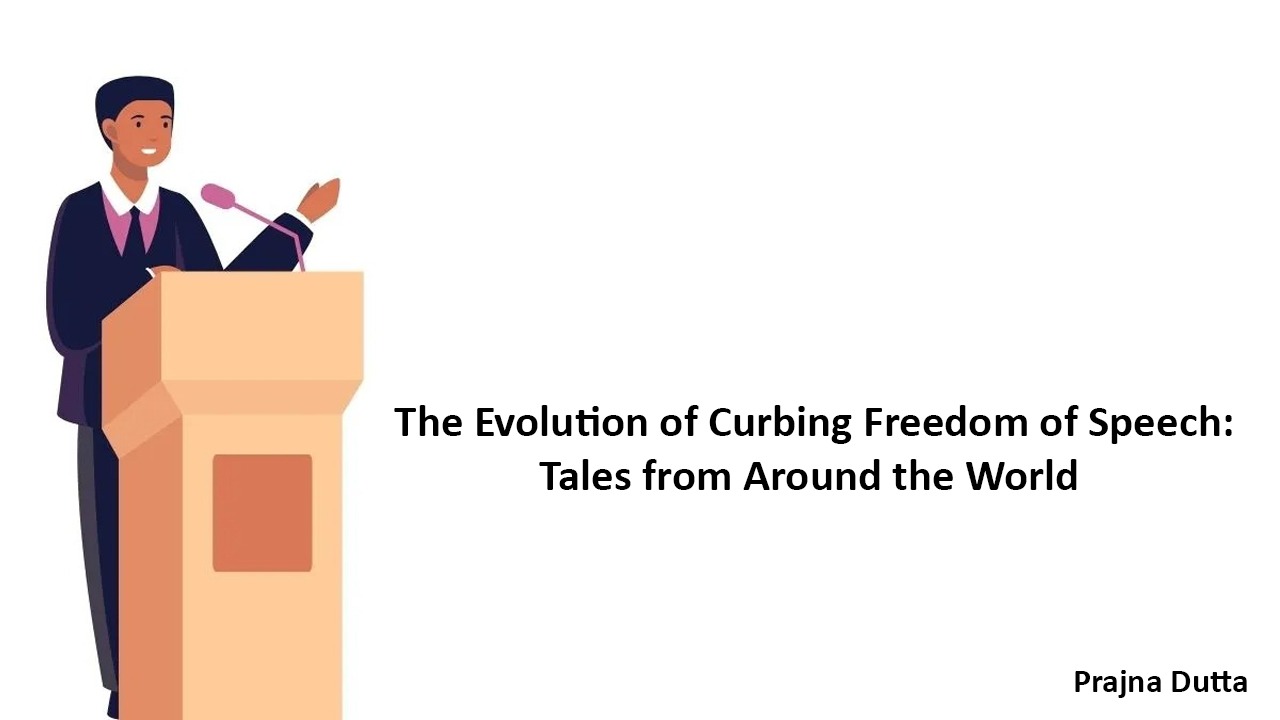Introduction:
Freedom of speech, a cornerstone of democratic societies, has faced numerous challenges throughout history. Governments, religious authorities, and ideological regimes have sought to control and restrict speech for various reasons. From ancient civilizations to the digital age, the suppression of free expression has left an indelible mark on our global narrative. This article delves into the rich tapestry of curbing freedom of speech, weaving together examples, anecdotes, and current events that illuminate this complex issue.
Ancient Civilizations: From Socrates to Slander Laws
In ancient Greece, renowned for its democratic ideals, citizens enjoyed the right to participate in public debates. However, this freedom was not without limits. The philosopher Socrates, for instance, was condemned to death by the Athenian authorities for "corrupting the youth" and challenging the prevailing beliefs. Similarly, in ancient Rome, the concept of libel emerged, making it a crime to damage someone's reputation through false statements. These early instances reveal the delicate balance between free expression and the need to prevent harm or abuse.
Religious Authority and Censorship: The Inquisition and the Index
Religion has played a significant role in shaping policies aimed at curbing freedom of speech. During the Middle Ages, the Catholic Church's Inquisition sought to suppress dissent and maintain doctrinal purity by punishing heresy. Inquisitors would scrutinize books, persecute individuals, and enforce self-censorship. The Index Librorum Prohibitorum, a list of forbidden books, further restricted access to dissenting ideas and scientific progress.
State Control and Ideological Suppression: Totalitarian Regimes' Iron Grip
Totalitarian regimes of the 20th century exemplified extreme curbing of freedom of speech. Nazi Germany, under Adolf Hitler, burned books and silenced dissenting voices to control the narrative and promote their ideology. Similarly, the Soviet Union under Joseph Stalin employed strict censorship, imprisoning and executing writers, intellectuals, and dissidents. These regimes used propaganda as a powerful tool to manipulate public opinion and stifle any opposition.
The Cold War and the Battle for Ideas: McCarthyism and Iron Curtains
During the Cold War, the United States and the Soviet Union engaged in a global battle of ideas. In the United States, the McCarthy era saw alleged communist sympathizers targeted, stifling free speech under the guise of national security. Simultaneously, the Soviet Union tightly controlled the flow of information within its sphere of influence, censoring dissenting voices and promoting state-approved narratives. Both superpowers engaged in a race to shape public opinion and suppress opposing ideologies.
Modern Challenges: Digital Age and Information Control
The advent of the internet brought new challenges to curbing freedom of speech. China's Great Firewall is a prime example, with the government implementing strict internet censorship to limit access to certain information and platforms. Social media platforms have also grappled with the responsibility of moderating content, striking a balance between free speech and curbing harmful or misleading information. Recent debates surrounding data privacy, online hate speech, and disinformation highlight the complexities of protecting free expression in the digital realm.
Conclusion:
The history of curbing freedom of speech is replete with examples, anecdotes, and current events that underscore the ongoing struggle for open dialogue and the free exchange of ideas. While progress has been made, challenges persist. International human rights frameworks recognize freedom of speech as a fundamental right, but its implementation varies across different regions.
In recent years, there have been notable cases that highlight the ongoing battle for freedom of speech. One such example is the case of journalist Jamal Khashoggi. Khashoggi, a Saudi Arabian dissident and prominent critic of the Saudi government, was brutally murdered inside the Saudi consulate in Istanbul in 2018. This heinous act sent shockwaves around the world, shedding light on the dangers faced by journalists and individuals who dare to speak out against oppressive regimes.
Another prominent example is the situation in Hong Kong. The region, once known for its vibrant protests and free expression, has witnessed a significant erosion of freedom of speech since the enactment of the National Security Law in 2020. The law has been used to crack down on pro-democracy activists, leading to the closure of independent media outlets, the arrest of journalists, and self-censorship among the populace. This demonstrates how governments can leverage legislation to suppress dissent and control the flow of information.
Social media platforms have become important battlegrounds in the fight for freedom of speech. In recent years, platforms like Facebook, Twitter, and YouTube have faced scrutiny for their content moderation practices. The deplatforming of controversial figures, such as former US President Donald Trump, has sparked intense debates about the power of private companies to restrict speech and the boundaries between free expression and incitement to violence.
The rise of fake news and disinformation in the digital age has further complicated the landscape of freedom of speech. Manipulation of public opinion through the spread of false information has emerged as a significant concern. Governments and tech companies have grappled with finding effective ways to combat misinformation without impinging on freedom of speech. Striking the right balance between protecting individuals from harmful content while preserving the open exchange of ideas remains an ongoing challenge.
It is essential to recognize the efforts made by activists, journalists, and civil society organizations in advocating for freedom of speech. Their tireless work to expose human rights abuses, uncover corruption, and amplify marginalized voices has been instrumental in challenging authoritarian regimes and pushing for greater transparency and accountability.
In conclusion, the history of curbing freedom of speech is a complex tapestry woven with examples, anecdotes, and contemporary events. From ancient civilizations to the digital age, governments, religious authorities, and ideological regimes have sought to control speech for various reasons. With each era, new challenges and opportunities have arisen, shaping the global discourse on freedom of speech. As we navigate the complexities of the modern world, it is crucial to remain vigilant and safeguard this fundamental right, ensuring that open dialogue and the free exchange of ideas continue to thrive.

Comments